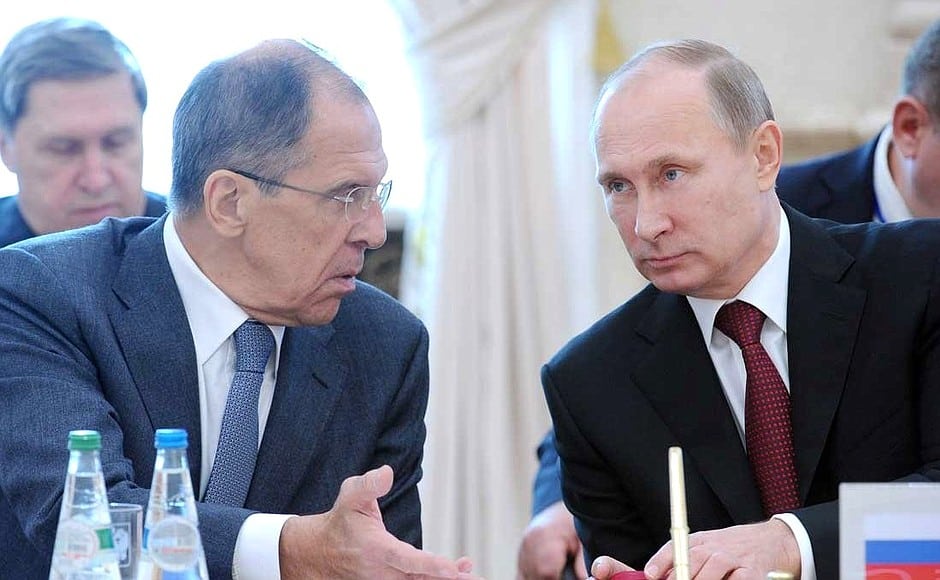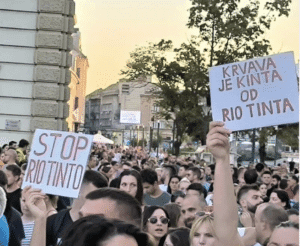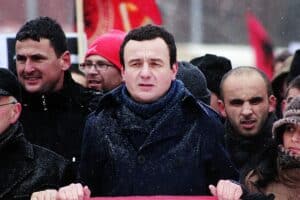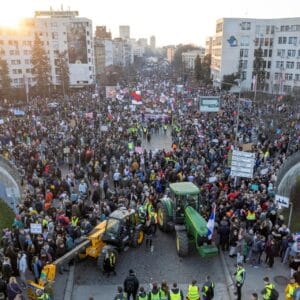Russian Foreign Minister Sergey Lavrov will visit Serbia for the celebration of 180 years formal diplomatic relations between the two countries. Before the visit, Lavrov spoke out against ‘’Western expansionism’’ in the Western Balkans criticizing the new EU enlargement strategy: ‘’The EU demands that every prospective EU member-state join the EU’s common foreign and defense policy […]either they side with the West or Russia’’. The Russian diplomat defended Russia’s own involvement in the region as ‘’solely constructive […] in an age of globalization’’. Russia has accused the West of expanding NATO and the EU at the expense of stability in the region and the Russian sphere of influence. The West in turn fears that Moscow is influencing politics in Serbia and Bosnia’s Republika Srpska. But how far does Moscow’s influence actually reach in the Balkans?
Russian sphere of influence Since the end of the Cold War, the Kremlin has been frustrated by the expansion of NATO and the EU in Eastern Europe. Russia recalls a promise by the West from the 1990’s that it ‘’would not advance a single inch eastward’’. Thereby guaranteeing the survival of a Russian sphere of influence in Eastern Europe. NATO and EU expansion happened nonetheless. The possible ascension of the Western Balkan countries to the European Union from 2025 onward is therefore problematic for Moscow. Lavrov has called the expansion of the EU dangerous, because its common foreign policy threatens to undermine Post-Cold War stability in Europe. Russia itself has become the victim of this common policy. The EU unanimously adopted sanctions against Russia in 2014 after the annexation of Crimea.
Russia’s soft power Historically Russia has cultural, religious and linguistic ties with the region. Using these ties, Moscow has tried to enact its soft power. Serbia has been Russia’s biggest supporter in Southeastern Europe for years. The country doesn’t aspire NATO membership nor did it imposed sanctions on Russia in the aftermath of the Ukraine crisis. Nonetheless is Serbia economically more depended on Europe than Russia. More than 50% of direct foreign investments come from the EU, against only 6% from Russia. The EU is also its largest trading partner. The main goal of all governments in Serbia since the fall of Milosevic has been to become EU member.
The same economic trend can also can be found in other countries. Aspiring membership states Albania, Kosovo, Macedonia and Montenegro are all economically depended on the European Union. EU countries are the largest trading partners of these countries. The Russian economic influence is small. Albania and Montenegro are both NATO members and joined the EU in sanctions against Russia. Macedonia is currently an aspiring NATO member.
In Bosnia the situation is more complex. The Bosniak-Croat entity of the country wants to join NATO and the EU. The Republika Srpska, the Serb entity in the country, is opposing NATO membership and seeks help from Moscow. Serb President Milorad Dodik and his Alliance of Independent Social Democrats (SNSD) has openly received financial aid from the Kremlin. Russian aid to Dodik has also come in the form of Russian trained paramilitary forces. Some expert fear that Dodik will use this Russian aid to break free from Bosnia-Herzegovina.
The Russian influence in the Western Balkans is limited but cannot be ignored. Besides the occasional rhetorical outcries and funding for pro-Russian politicians, most Russian influence is imbedded in shared history and culture. Economically, politically and geographically the region is closely linked and dependent on the EU.
Sources: Balkan Insight rferl OEC IOEC II OEC III US Department of Commerce The Ministry of Foreign Affairs of the Russian Federation



